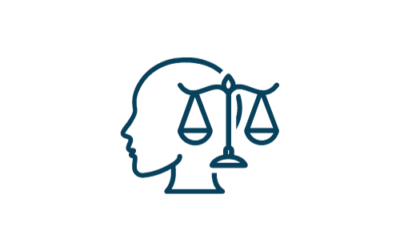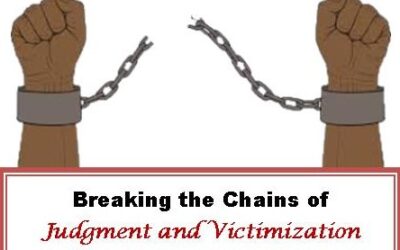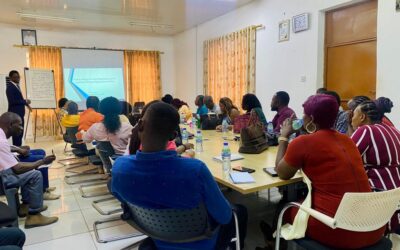Brief Case History
It could be recalled that sometime in August 2013 the Sierra Leone Police arrested 18 personnel of the Republic of Sierra Leone Armed Forces (RSLAF)
on suspicion that they were planning a mutiny against the government. The personnel, including Private Momoh Kargbo, Warrant Officer Frederick Johnson, Private Abdulai Coker Suma, Corporal Momoh Conteh, Private Alpha Mansaray, Corporal Alex Jibao Koroma, Private Mustapha Quee, Private Kellie Kamara, Private Musa Fabai, Private Bobor Rogers, and Captain Prince Sesay, were detained for nearly eight months (August 10, 2013 to March 2014), without appearing before a court to respond to allegations against them.
Human rights groups, including the Centre for Accountability and Rule of Law
(CARL), criticized the government for violating the rights of the detainees (detaining them beyond the constitutionally-mandated period of 10 days without arraigning them in court). The Justice Ministry gave a number of excuses for the delay in commencing their trial, including the lack of resources to fund the judicial process. CARL described the prolonged detention of the personnel as a breach of their constitutionally guaranteed rights, and urged the state to either ensure a speedy trial for the accused persons or release them without delay. Consequently, in March 2014, the government announced the establishment of a Court Martial to try 14 of the 18 personnel who had been arrested. In the absence of information regarding the whereabouts of the others, CARL pressed the government to provide more information on the four others. In April 2014, the government decided to release the four personnel.
The trial is being presided over by Judge Advocate Justice Otto During, who is being assisted by a jury of five advocates, namely: Lt. Colonel B. Jusu; Presiding, Major M. Koroma, Captain S.M. Kanu, WO I. Jalloh and WO I. Ken-Marrah as members. The state is represented by Senior State Counsel Gerald J. Soyei, Mark Ngegba Esq., Mr. Jeremiah Bonah Esq. and Vincent Sowa Esq., while the Defence team constitutes Barristers J.L. Cuffie, I.P. Mammy, Thomas Beah, and Robert Kowa.
Summary of the Prosecution’s Case
The prosecution’s case is that all the 14 accused persons, being serving members of the Republic of Sierra Leone Armed Forces (RSLAF), on diverse dates between 1st March and 31st August 2013, at 4th Brigade Headquarters, Teko Barracks, Makeni, got together with other persons unknown, to plan and hold secret meetings at the St. Andrew’s Junior Secondary School, the Squad 99 Meeting and the Wusum Field respectively, in order to destabilize the security of the state of Sierra Leone, by means of holding senior officers of RSLAF and ministers of government hostage and eventually taking over the administration of His Excellency the President, Ernest Bai Koroma, between 6th and 19th of August 2013.
The prosecution also claims that the execution of this alleged plot was supposed to have commenced during the RSLAF Command Conference that was held at Teko Barracks, in Makeni, sometime in March 2013. But because one of the alleged mutineers, the 10th Accused, who was supposed to facilitate the provision of arms and ammunition, became scared, the alleged plot was pushed forward to between 6th and 10th August, 2013.
Summary of the Evidence in the Prosecution’s Case
The prosecution led 11 witnesses among whom were 3 factual witnesses and 8 formal witnesses.
Factual Witnesses
The first factual witness for the prosecution was PW-2 Sergeant Momodu Jalloh, who is a soldier attached to the 4thInfantry Battalion, Teko Barracks, Makeni. He testified that he recognized one of the accused PW-1. He recalled that on the 10th August, 2013 he was at home when the 1st Accused came to his wife who sells bread and tea, requesting her to loan him bread and a cup of tea, and that after considerable reluctance from his wife, she however offered him the bread and a cup of tea out of compassion. He said, pretending to be part of the plot, he took the 1st Accused to the shade of a tree and asked him if he knew that they had a planned operation; that the 1st Accused confirmed to him their plans to have their commanders and the President arrested because of the exorbitant deductions from their salaries for the canteen. He was briefly cross-examined by the lead Defence Counsel Barrister J.L. Cuffie, who, inter alia, exposed the inconsistency between the witness’ statements at the police and his testimonies in court.
The second factual witness was Memuna Taqi Kamara, a trader. She testified that she lives at No. 9 Teko Road, Veterinary, Makeni. In her testimony, she recognized the 3rd Accused, Private Abdulai Coker Suma. She testified that she had known him when she went to collect her mobile phone from the house of the 7th Accused, where she had given the phone to him to recharge the battery; and that on her arrival, she had met the 7th Accused, his wife and the 3rd Accused; that the 7th Accused got up and went into the bedroom to fetch her mobile phone and the 3rd Accused called her outside the house and asked her whether she was Memuna, to which she had replied “yes”.
During cross-examination by the counsel for the 3rd Accused as to the exact month she went to collect her mobile phone at the house of the 7th Accused’s residence, she told the court that she could not recall the month and that she had come to know the 7th Accused in July 2013. She further said in cross-examination that she could not remember whether the second time she had seen the accused was in July 2013.
The third and last factual witness for the prosecution was Memunatu Conteh. She lives at Teko Barracks in Makeni. She recalled that sometime in July 2013, the 7th Accused had come to her house and said he wanted to tell her something. He had told her that they were on a mission known as “Operation Awareness”. She then asked him if the mission was to overthrow the government and he had said no. He had further informed her that all the other soldiers in other barracks were aware of the operation; that they had vehicles they would use to accomplish the mission, and that they had identified people who would be arrested and tortured. He had said that they would behead those people, take their heads to Freetown and show them to the President. She further said that the 7th Accused had told her that they would also arrest President Koroma and torture him.
The second set of witnesses for the prosecution comprised 8 formal witnesses who are mainly serving police officers of the Criminal Investigations Department and the Military Police. They testified before the court mainly regarding the part they played when they got information of the alleged mutiny. This involved interrogations, taking and recording of statements and tendering of exhibits to support the case of the prosecution.
The Defence Counsel’s No-Case Submission
After the prosecution had closed its case, the defence counsel for the accused military officers indicated to the court that they intended to file a no-case submission on behalf of all the accused persons. The no-case submission took the form of a written submission which was submitted in court and served to the respective parties in the trial. During the submission, the defence counsels decided to split themselves among the 14 accused military officers as follows: Barrister R. B. Kowa for the 14th Accused, Barrister T. Beah for the 10th, 11th, 12th and 13th Accused, Barrister I. P. Mammy for the 6th, 7th, 8th and 9th Accused and Barrister J. L. Cuffie for the 1st, 2nd, 3rd, 4th and 5th Accused.
They briefly indicated to the court before their submissions that they were relaying on the Court Martial Procedure Rules of 2003 and the 1991 Constitution which is against the undue detention of the accused military officers for over 8 months without trial. They further indicated to the court that none of the witnesses brought before the court in their testimony revealed any incriminating evidence against their clients and that there were a lot of inconsistences between the testimonies of the witnesses and their statements taken previously at the police. Drawing references from Blackburn Commentaries, they further said that the evidence before the court did not sustain the charges and that the manner in which the police had carried on their investigation did not respect the principles set out in the Judges’ rule in relation to voluntary caution statements of witnesses; that there was no evidence before the court that shows that the alleged meeting at St. Andrew’s Junior Secondary School had any connection with the alleged offences under charge as it was a duly authorized meeting. Finally, they submitted that they relied on the above arguments, among others, for the Judge Advocate to acquit and discharge the accused persons, for they had no case to answer.
The prosecution is expected on the next adjourned date to present a written reply to the no-case submission as to why they think the accused persons have a case to answer. After that the Judge Advocate Otto During will have to ascertain and give a ruling as to whether the evidence before him is sufficiently weighty enough to sustain the standard of a prima facie case against the accused persons.



